
Five Reasons Why K.I.N.D. Helps Kids
A simple desk can help students in Africa rise up and learn.
Escaping a life of poverty — education is the primary way for children to lift themselves to a better future. But 59 million children around the world are NOT in primary school, and more than half of those children are in sub-Saharan Africa.
Even those who are in school may struggle to learn while sitting on the floor or the ground. Launched in 2010 by MSNBC host Lawrence O'Donnell, the Kids in Need of Desks initiative (K.I.N.D.) is a first step toward keeping students in school and heading toward the future they deserve. Here are five reasons K.I.N.D. helps kids:
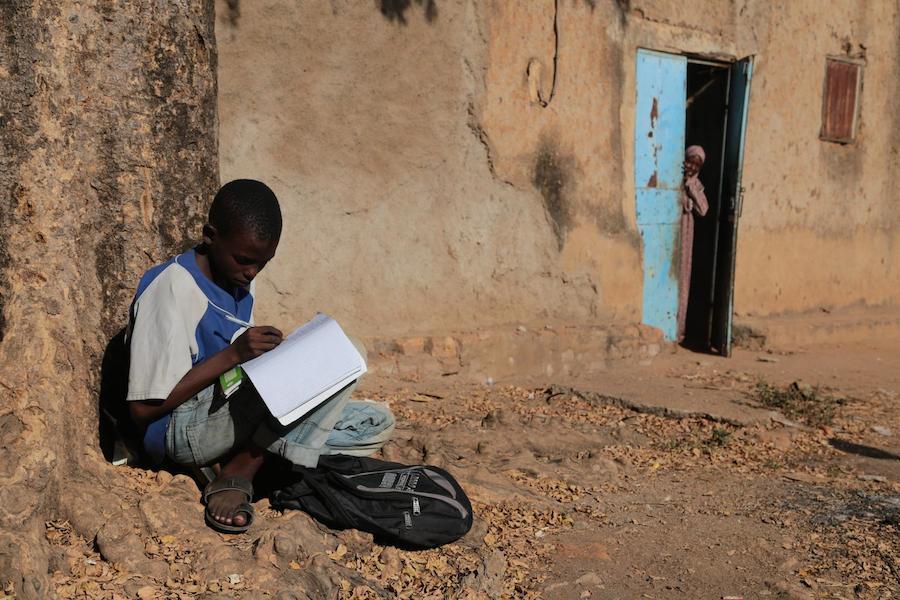 A boy completes his homework while seated under a tree near his home in Moundou, Chad. ©UNICEF/2015/Rich
A boy completes his homework while seated under a tree near his home in Moundou, Chad. ©UNICEF/2015/Rich
1. Kids on the floor can't learn
In Africa, learning can often be a difficult balance of juggling a notebook and pencil from one knee to the other, as eager children hold a paper and pencil in their lap. Sitting crosslegged on hard and uncomfortable dirt or cement floors can make it both challenging and frustrating for a child. By providing students with desks, K.I.N.D is lifting children off the ground and helping them to concentrate on their work.
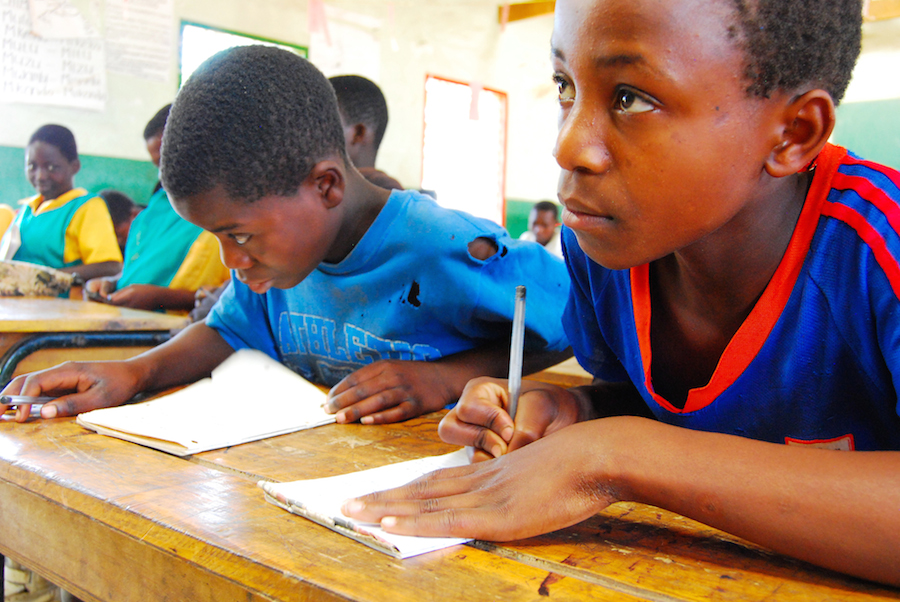 Students in the UNICEF-supported Mchuchu Primary School in Malawi. © UNICEF
Students in the UNICEF-supported Mchuchu Primary School in Malawi. © UNICEF
2. K.I.N.D doesn't just help a few
Launched in 2010 by MSNBC’s The Last Word with Lawrence O'Donnell, K.I.N.D. has already delivered almost 150,000 desks. Nearly HALF of Malawi's students are now off the floor, and K.I.N.D won’t stop until every single child in Malawi is sitting at a desk. The program reaches well beyond one classroom, one child and one community. K.I.N.D is creating a better future for the entire country.
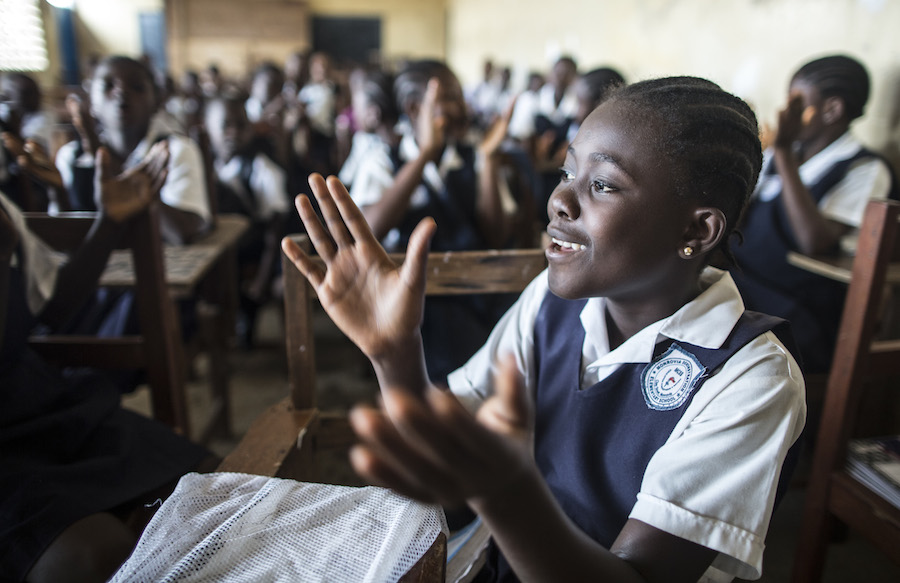 A girl at the UNICEF-supported Monrovia Demonstration School in Liberia during a class sing-along on the first day of the new academic year. © UNICEF
A girl at the UNICEF-supported Monrovia Demonstration School in Liberia during a class sing-along on the first day of the new academic year. © UNICEF
3. K.I.N.D helps girls live better lives
For girls in Africa, getting an education is often a challenge. In Malawi, for example, only 7 percent of girls complete secondary school. Yet education offers girls independence and a chance at a healthier life, helping them to acquire skills, earn an income, and avoid child marriage and early pregnancy. K.I.N.D. scholarships provide girls in Malawi with a year of education that includes school fees, room and board, transportation and educational supplies.
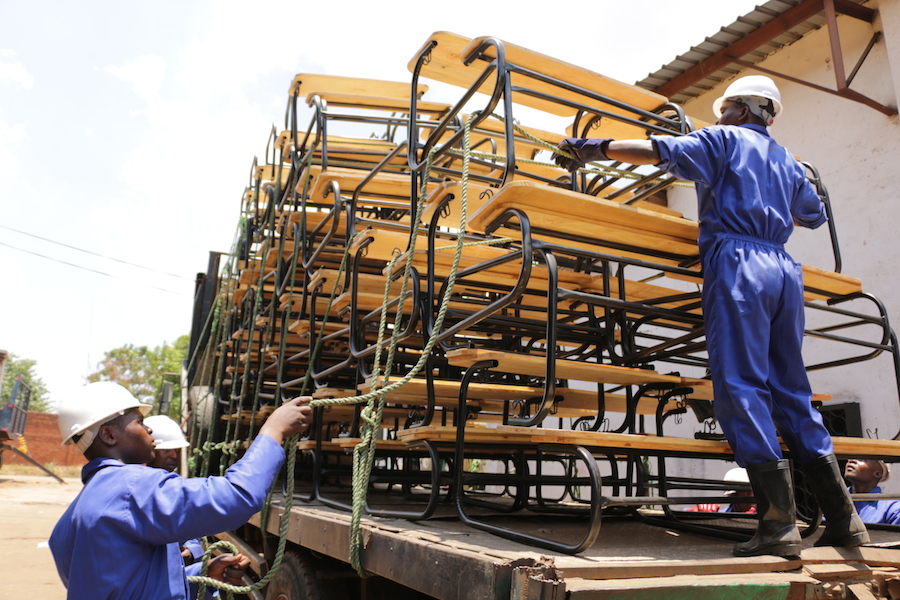 Factory workers at M&G Industries load a truck full of K.I.N.D. desks for delivery in northern Malawi. © UNICEFUSA
Factory workers at M&G Industries load a truck full of K.I.N.D. desks for delivery in northern Malawi. © UNICEFUSA
4. K.I.N.D helps the local economy
In Malawi, 74 percent of the population lives on less than $1.25 a day, and jobs are exceedingly hard to come by. Every K.I.N.D. desk UNICEF distributes is made and procured locally. By creating jobs, K.I.N.D. isn’t just helping bring a more prosperous future tomorrow, it’s helping families put food on the table today.
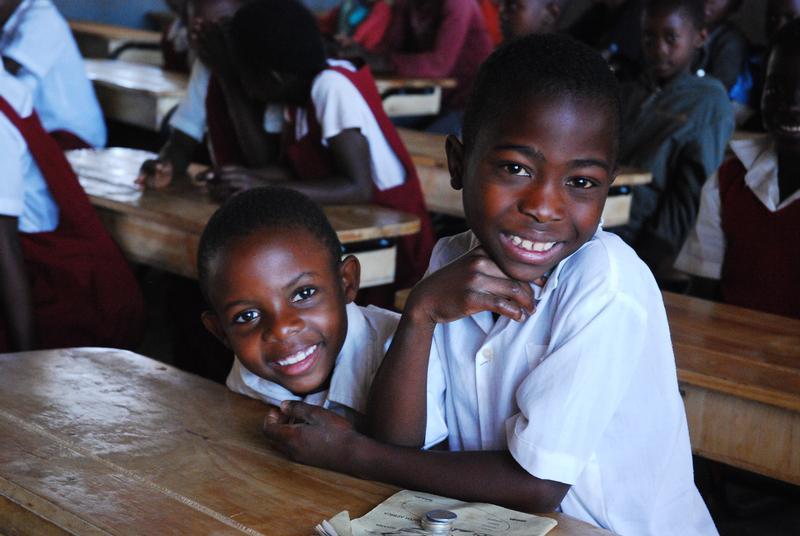 Two students in Malawi at a desk provided by the K.I.N.D. fund. © UNICEFUSA
Two students in Malawi at a desk provided by the K.I.N.D. fund. © UNICEFUSA
5. K.I.N.D is proven to work
K.I.N.D is helping students in Africa rise up and learn. When the program began in 2010, just 1 in 5 students in Malawi had a desk. Today, the K.I.N.D Fund has raised over $10 million and is on track to deliver desks to more than 500,000 students in Malawi. A simple desk can be the ticket to long-term progress and lead to sustainable growth for development. If we keep the desks coming, one day, every child in Malawi will be comfortably seated and ready to learn
This February, to celebrate and honor Black History Month, the U.S. Fund for UNICEF is teaming up with prominent faith leaders across the country to help provide children in Africa with a quality education. Find out about Rise Up and Learn.
HOW TO HELP
There are many ways to make a difference
War, famine, poverty, natural disasters — threats to the world's children keep coming. But UNICEF won't stop working to keep children healthy and safe.
UNICEF works in over 190 countries and territories — more places than any other children's organization. UNICEF has the world's largest humanitarian warehouse and, when disaster strikes, can get supplies almost anywhere within 72 hours. Constantly innovating, always advocating for a better world for children, UNICEF works to ensure that every child can grow up healthy, educated, protected and respected.
Would you like to help give all children the opportunity to reach their full potential? There are many ways to get involved.





